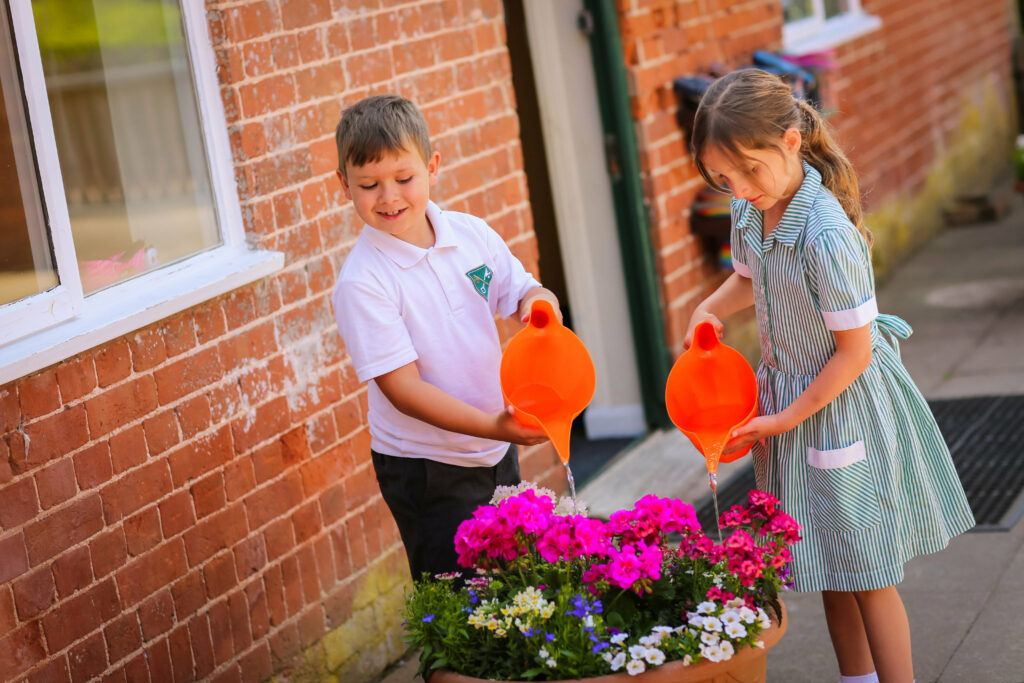Taking on a fresh challenge can be stressful for everyone, but particularly children. However, with careful encouragement from parents and carers, children can be given more opportunities to succeed, whether it’s joining a new club at our independent school in Devon, starting a new activity at home, or something else entirely.
The key to participation is often slowly building your child’s self-confidence and comfort in new situations. Here are some popular techniques you can use in various circumstances.
Understand Why They Don’t Participate
First things first, it’s always good to have an open conversation with your child to understand why they don’t want to participate. There are many reasons why children might feel shy in coming forward, and some are easier to solve than others.
For example, if your little one isn’t joining in because they don’t like a particular activity – such as competitive sports – then it could be best to discuss what activities they might prefer that still give them the physical and social benefits of joining sports clubs.
On the other hand, if you know that they usually love the activity but appear nervous or distant in particular environments, that could be something to work on, especially if you understand what makes them feel that way.
Build Confidence with Small Responsibilities
If a child isn’t participating very much in an activity that they enjoy or excel at, it’s often because they need support to build their confidence. This process can be started at home by giving children smaller leadership and responsibility roles.
For young children, letting them lead games at home can be a fun and easy way for them to find their voice and learn to take responsibility in an active setting. For older children, giving them responsibilities – such as talking to guests or weekly chores – can help them find and recognise their importance, a crucial foundation on which to build self-confidence.

Encourage Participation in Comfortable Environments
Continuing from the point above, helping a child become more confident and participatory often starts at home. Giving your child the opportunity to take responsibility for themselves and others in the safe space of home is a fantastic way to support their longer-term development.
Little things done regularly can make a big difference. If you’re enjoying a family meal and everyone’s talking about their day, make sure you ask your child to talk about what they’ve been doing.
Safe environments don’t just exist at home, however. If you know your child’s friendship group, you could encourage them to join their clubs and activities. Being surrounded by friends can give people the confidence to speak out more often than in an activity surrounded by strangers.
Set an Example
It’s easy to underestimate how often we have an influence on our children. In almost every area of their development, children will look to parents and carers for guidance. Self-confidence and participation are no exceptions.
For younger children, looking for activities and clubs where parents can also participate can be a great way to make them feel more comfortable and confident.
Even if you can’t join the activity yourself, you can help your child feel like they’re sharing the new experience with you through encouragement and praise for their efforts. Try to share open and honest discussions about how your child is feeling regarding their activities and self-confidence.
Focus on Steady Progress
If your child is nervous, it’s best to build them up slowly rather than throwing them in at the deep end. Using the various techniques discussed above, let your child grow their confidence gradually with small milestones as you work towards whatever end goal you might share.
It can be tempting to focus on rewards – for example, treating your child to a dinner of their choice if they do the after-school club. However, this can sometimes distort the reason for joining in the first place and might not encourage your child to actually participate. Instead, try to focus on enjoying and celebrating the process of gradual improvement.
Encourage honesty around the challenges of participating and speak about the benefits of doing so – improving your skills, making new friends, having fun and more.
Every child is unique, and there could be many reasons why a child doesn’t participate in a particular activity. While not all of these points will apply in every case, there are hopefully one or two tricks here that can help with your little one.








